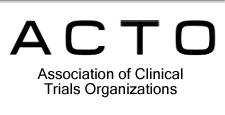|
Home > Analytics & Media > Press Releases > Moscow, December 10, 2009 - ACTO comments on the draft Federal law «On Ñirculation of Medicines»
Moscow, December 10, 2009
ACTO comments on the draft Federal law «On Ñirculation of Medicines»
The Ministry of Health and Social Development informed on December 09, 2010 that the Government of the Russian Federation would consider the draft Federal law «On Ñirculation of Medicines» on December 14, 2010. The simplification of the state registration procedure is one of the innovations of the law, Health and Social Development Minister Tatyana Golikova emphasized. «The state registration procedure becomes transparent and understandable», she said.
ACTO considers that the state registration procedure proposed by the Ministry of Health and Social Development in the draft Federal law «On Ñirculation of Medicines» does not meet declared goals and throws Russian pharmaceutical market 10 years back.
The draft Federal law «On Circulation of Medicines» introduces the alleged simplification – clinical trial conduction is included in the state registration. In accordance with the Federal law «On Medicinal Products» ¹86-FZ dated June 22, 1998 the state registration is carried out based on the data of earlier clinical trials. The difference not even noticeable at first glance is fraught with serious consequences.
All over the world the drug development process is very long and complicated. Non-clinical and clinical trials conduction takes up to ten years. In the course of international multicentre clinical trials conducted to ascertain efficacy and safety of investigational products they are given to large groups (1,000-3,000) of trial subjects. An investigational product studied in the course of international multicentre trial may receive marketing authorization in any developed country if a clinical trial was conducted in compliance with GCP (Good Clinical Practice) because there is the mutual acceptance of GCP compliant clinical trial data. For now, a pharmaceutical company may submit the results of clinical trials conducted earlier to register a medicinal product in Russia, irrespective of country of conduction.
If the mentioned provision is adopted, pharmaceutical companies will have to carry out repetitive tests in Russia involving human subjects as it was 10-12 years ago, before the Federal law «On Medicinal Products» came into effect.
All over the world repetitive tests are considered inadmissible without urgent need. According to World Medical Association Declaration of Helsinki adopted by the 18th WMA General Assembly, Helsinki, Finland, June 1964, and amended by the 59th WMA General Assembly, Seoul, October 2008, «medical research involving human subjects may only be conducted if the importance of the objective outweighs the inherent risks and burdens to the research subjects».
Directive 2001/83/EC of the European Parliament and the of the Council of 6 November, 2001 on the community code relating to medicinal products for human use states that «there are reasons of public policy for not conducting repetitive tests on humans or animals without over-riding cause». Directive 2001/20/EC of the European Parliament and of the Council of 4 April, 2001 on the approximation of the laws, regulations and administrative provisions of the Member States relating to the implementation of good clinical practice in the conduct of clinical trials on medicinal products for human use states: «In order to achieve optimum protection of health, obsolete or repetitive tests will not be carried out, whether within the Community or in third countries. The harmonization of technical requirements for the development of medicinal products should therefore be pursued through the appropriate fora, in particular the International Conference on Harmonization».
The innovation introduced in the draft Federal law will impact not only marketing practice, but also the quality of clinical research in Russia. The quality of clinical trials in Russia is now high, and the trials are under the supervision of the authorized agencies of other countries. The implementation of the provision introducing repetitive tests involving Russian population will result in a large number of trials with statistically invalid results and contribute to the rise of corruption.
«The Federal law engages in an attempt to resolve old problems. But it invokes new grave problems. There can be serious implications not only for the Russian pharmaceutical market, but also for the health of the Russian population», said the Executive Director of ACTO Svetlana Zavidova.
|


